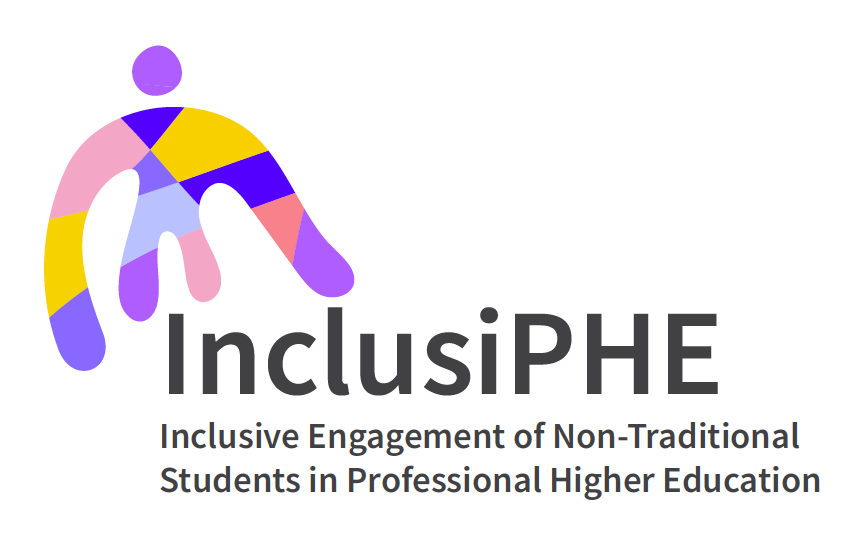InclusiPHE – Inclusive Engagement of Non-Traditional Students in Professional Higher Education
Politische EU-Entscheidungsträger haben Hochschulen aufgefordert, soziale Aspekte stärker in den Blick zu nehmen, um die Vielfalt der europäischen Bevölkerung auch in der Studierendenschaft zu reflektieren. Das Projekt InclusiPHE nimmt vor allem Studierende an Hochschulen in den Blick, da jene in der Regel ein vielfältigeres Spektrum an Studenten anziehen, mit einem Anteil an nicht-traditionellen Studenten im Vergleich zu Universitäten – wie beispielsweise ältere Studierende, lebenslange Lernende, Studierende mit Kindern, Migrationshintergrund, einer Behinderung etc.
Das Projekt InclusiPHE verbindet die soziale Dimension von Hochschulbildung mit dem Engagement von Studierenden und hat als Hauptziel, zu einem inklusiveren Umfeld an Hochschulen beizutragen. Das Projekt zielt darauf ab, Regeln, Mechanismen und Handlungsweisen für inklusives Engagement aller Studierenden ungeachtet ihres Hintergrundes zu verbessern – um alle Studierenden in alle Aspekte des Lehrens und Lernens, der Qualitätssicherung und der institutionellen Entscheidungsfindung innerhalb der Institution und in der Studierendenschaft miteinzubeziehen, um damit auch dazu beizutragen, demokratische Werte zu verinnerlichen.

inclusiphe.eu
Zeitraum
September 2020 – August 2023
Projektkoordinator
Mondragon University, Spanien
Projektpartner
Mondragon University
EURASHE
European Students' Union
MCAST, Malta
Knowledge Innovation Centre
Institute for the Development of Education
UCLL
Finanzierung
Erasmus+
Fördersumme
265.475,00€ Gesamtbudget
38.166,00€ DHBW Karlsruhe
Prof. Dr. Ulf-Daniel
Ehlers
Leiter der Forschungsgruppe und Professur für Bildungsmanagement und Lebenslanges Lernen
Prof. Dr. Ulf-Daniel
Ehlers
Leiter der Forschungsgruppe und Professur für Bildungsmanagement und Lebenslanges Lernen